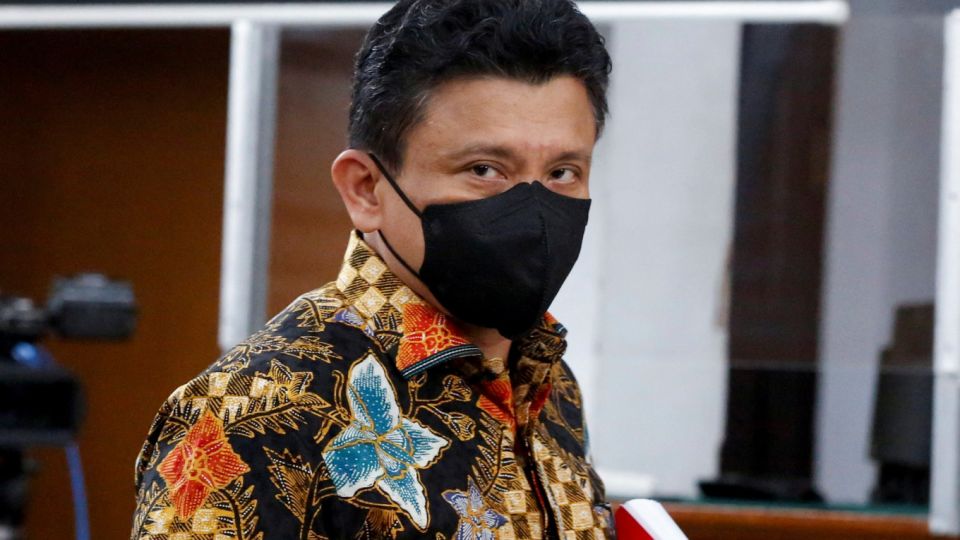October 18, 2022
JAKARTA – As the high-profile murder trial of police general Ferdy Sambo gets under way, calls for drastic measures to reform the National Police are mounting amid a series of controversies that have led to a crisis of confidence in the law-enforcement institution.
The former head of the police’s internal affairs division (Propam) stood trial at the South Jakarta District Court on Monday for the murder of his own aide-de-camp, Brig. Nofriansyah Yosua Hutabarat, whose death in July was initially made to look like the result of a shootout.
In the indictment read out in court, prosecutor Sugeng Hariadi accused Ferdy of putting a bullet through the back of Yosua’s head to ensure he was dead, as the victim was writhing in pain after being shot by an accomplice.
Ferdy’s lawyer declined to say how his client would plead, but insisted last week that Ferdy had ordered Yosua to be assaulted and not shot, Reuters reported.
The case has been cited by observers as one of the biggest scandals in the history of the police corps, with President Joko “Jokowi” Widodo singling it out on Friday as the reason why the public had lost trust in the force.
“When the ‘FS’ incident happened, everything went sour and [public trust in the police] fell to its lowest point. Before that it was the highest compared with other law-enforcement institutions,” Jokowi told hundreds of high-ranking police officers at the State Palace on Friday, in a video issued a day later on the Presidential Secretariat Youtube channel.
The President referred to a public opinion poll by Indikator Politik Indonesia, which found perceived public trust in the police to have fallen from 80.2 percent in a November 2021 survey to just 54.4 percent in an August survey.
However, Jokowi’s stern reminder was overshadowed by the arrest on Friday of another two-star general, Insp. Gen. Teddy Minahasa, on charges relating to a drug case.
Teddy had been tapped just days prior to take over the reins of the East Java Police, after predecessor Insp. Gen. Nico Afinta was demoted in the aftermath of the Kanjuruhan Stadium tragedy in Malang, East Java.
The police are accused of violating world soccer governing body FIFA’s prohibition against using tear gas inside the stadium, as well as for using excessive force in crowd control. A state-led fact-finding team concluded on Friday that the use of tear gas had led to the deadly stampede that claimed the lives of at least 132 soccer fans.
These controversies, along with social media reports of the lavish lifestyles that many police officers enjoy apparently on the public payroll, have resulted in greater calls for reform.
“Police reform has been one of the top agendas of the Reform era, after the fall of the New Order [in 1998],” said Bambang Rukminto of the Institute of Security and Strategic Studies (ISESS), on Monday. “However, over the past 20 years, this spirit of reform has not materialized.”
Weak internal supervision by the police and a lack of accountability are the primary reasons for the recent string of incidents, Bambang suggested, underlining Ferdy’s role as the former Propam chief.
It was a crucial time for National Police chief Gen. Listyo Sigit Prabowo, he continued, as the police chief must take charge and usher in reforms lest he risk losing his job.
“[Listyo] must be firm and he can’t just rely on the input of his subordinates. In fact, [the recent cases] have been a product of systemic failure that has accumulated over the years,” the security analyst told The Jakarta Post.
Among the priorities is strengthening the role of external police supervision, particularly by the National Police Commission (Kompolnas), which oversees the police but answers to the President. Bambang said Kompolnas should include more civilian members and reduce the number of police officers among its commissioners.
Separately, Poengky Indarti, a civilian Kompolnas commissioner, said that the ad hoc body supported calls for a “cultural reform” within the National Police.
She also urged the police’s Propam division to be more proactive in snuffing out violations and pursuing more ethics hearings and even punitive measures, where necessary.
“Kompolnas encourages the leadership and all members of the National Police to reignite the spirit of reform,” she told the Post on Monday.
“We will continue to supervise the police and invite all members of the public to help us carry out this task.”


